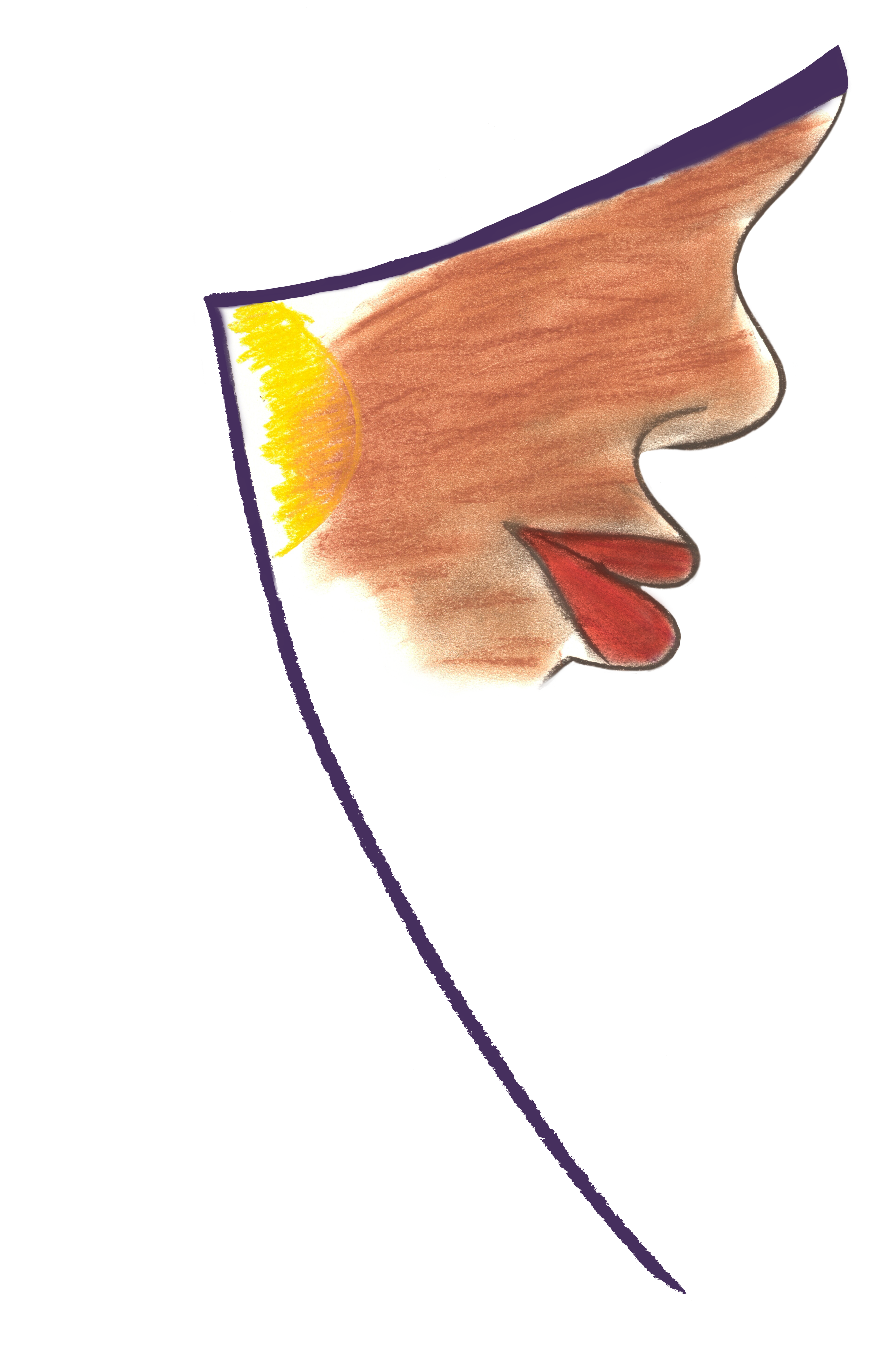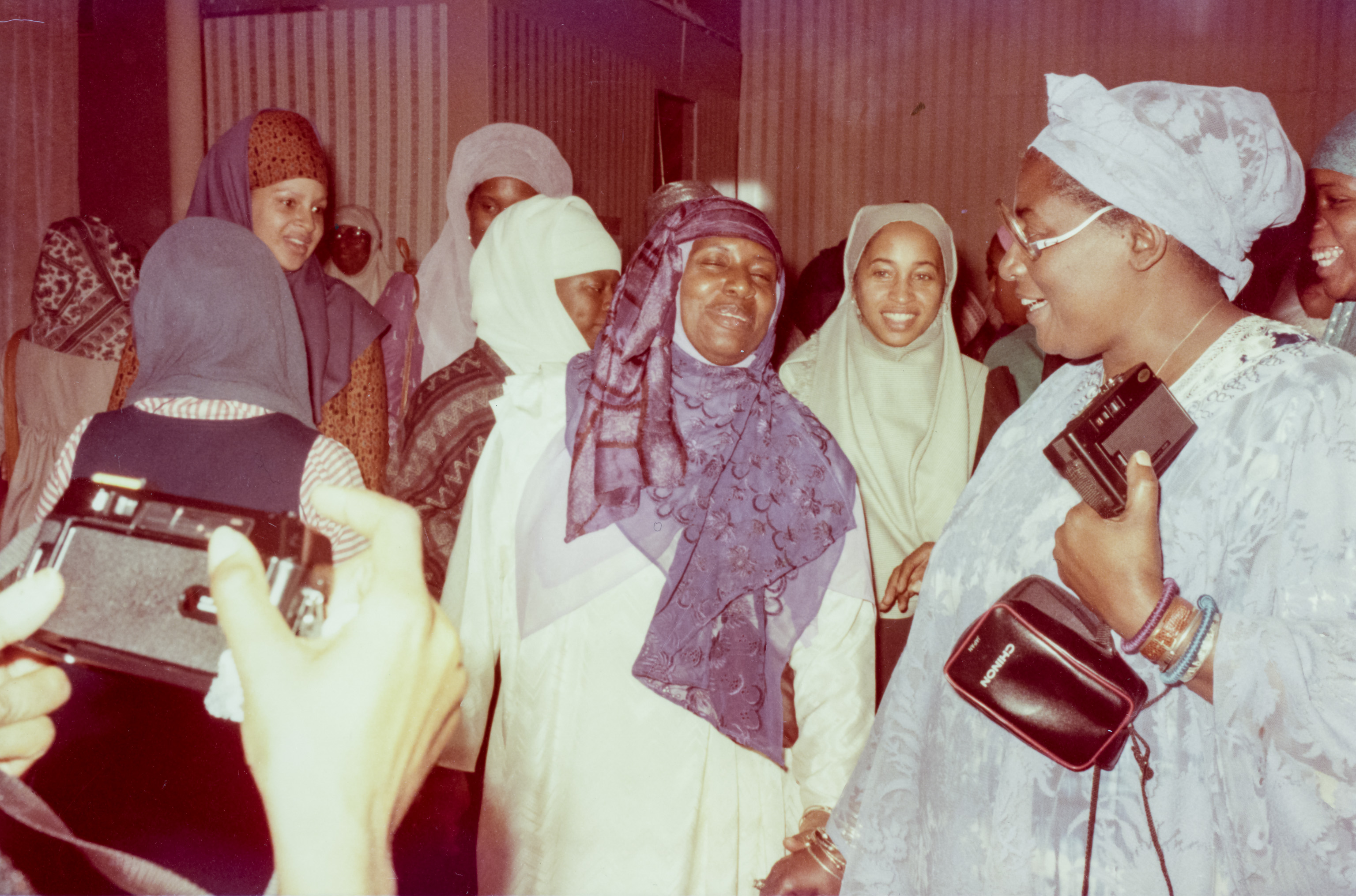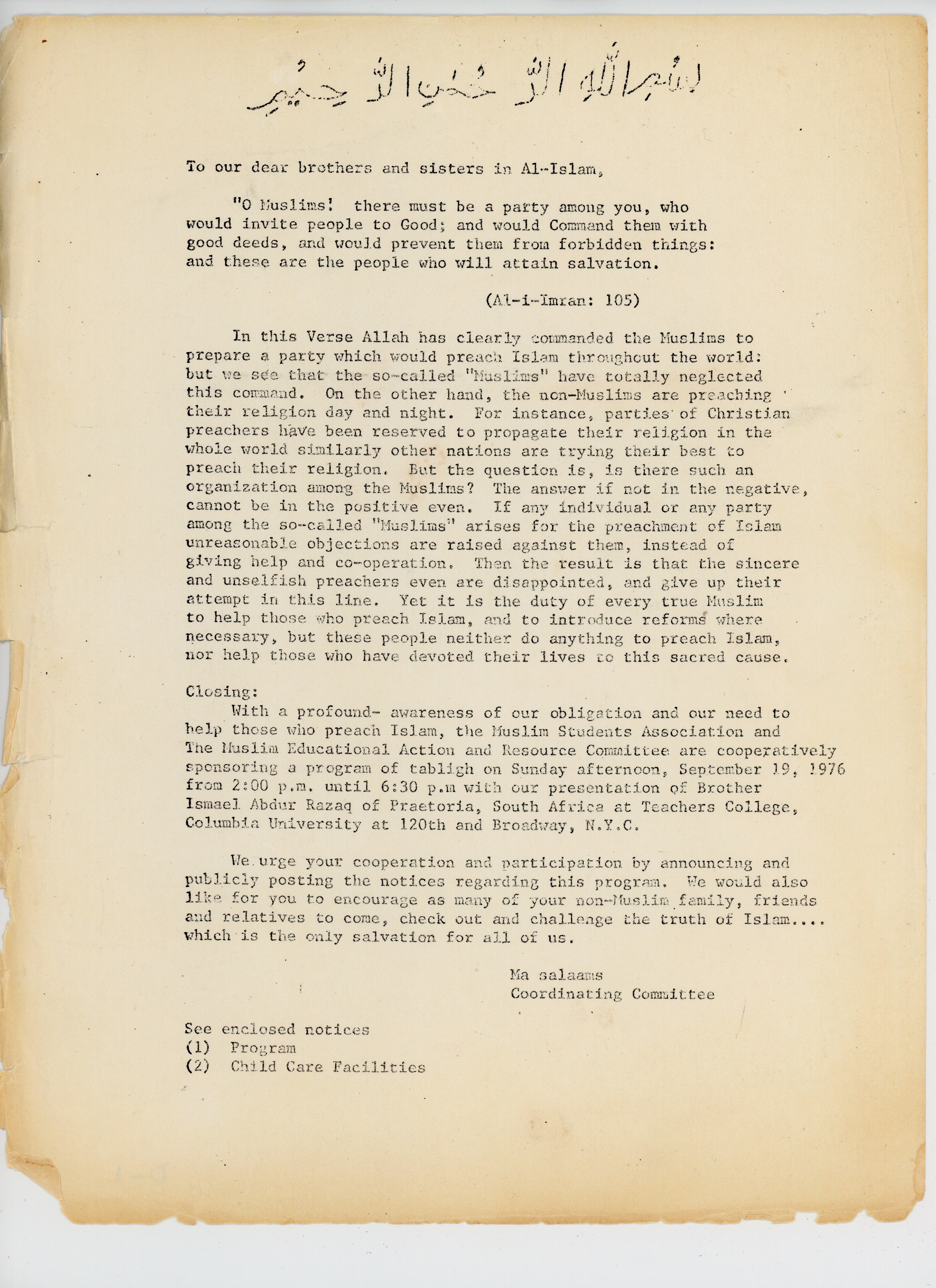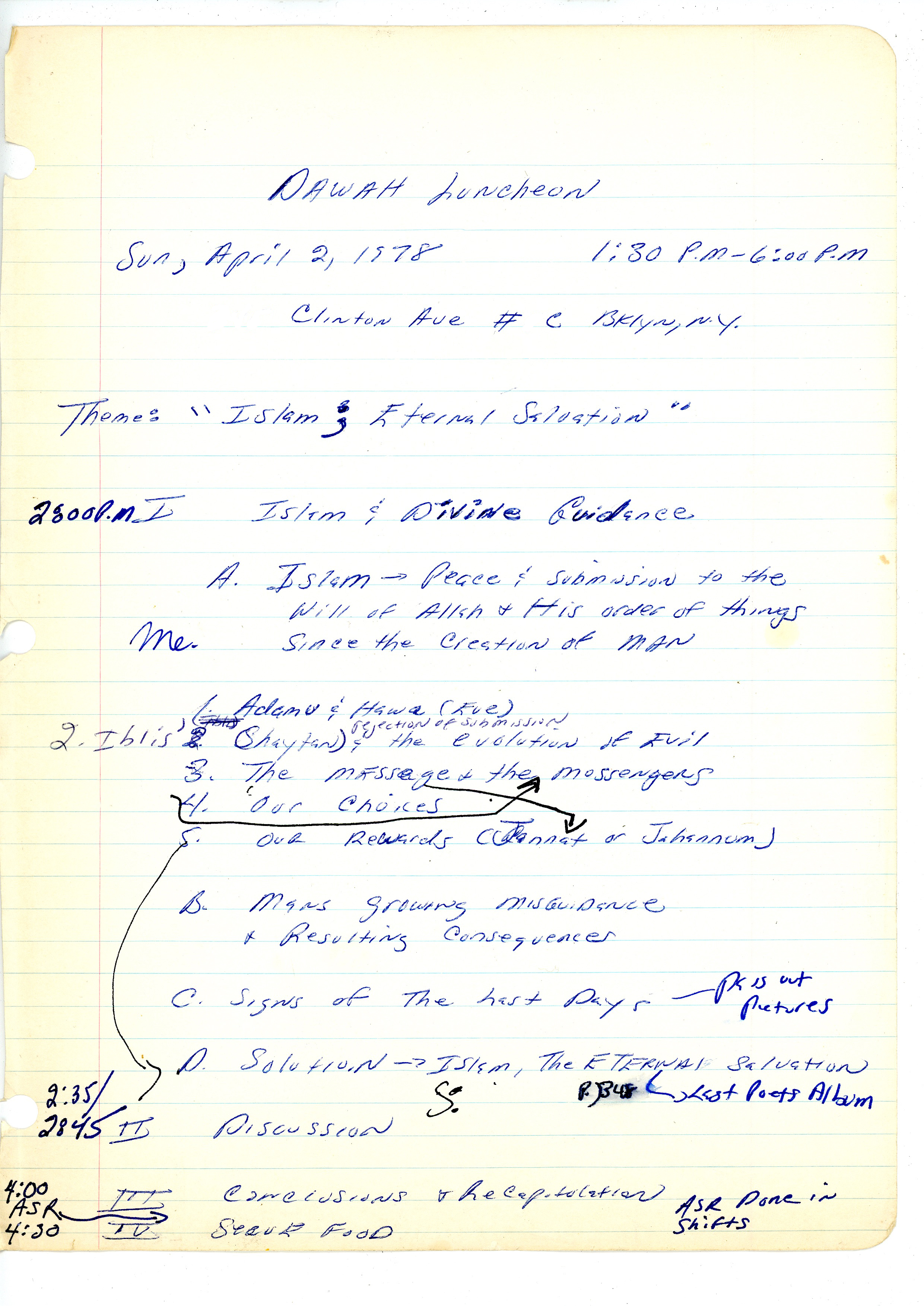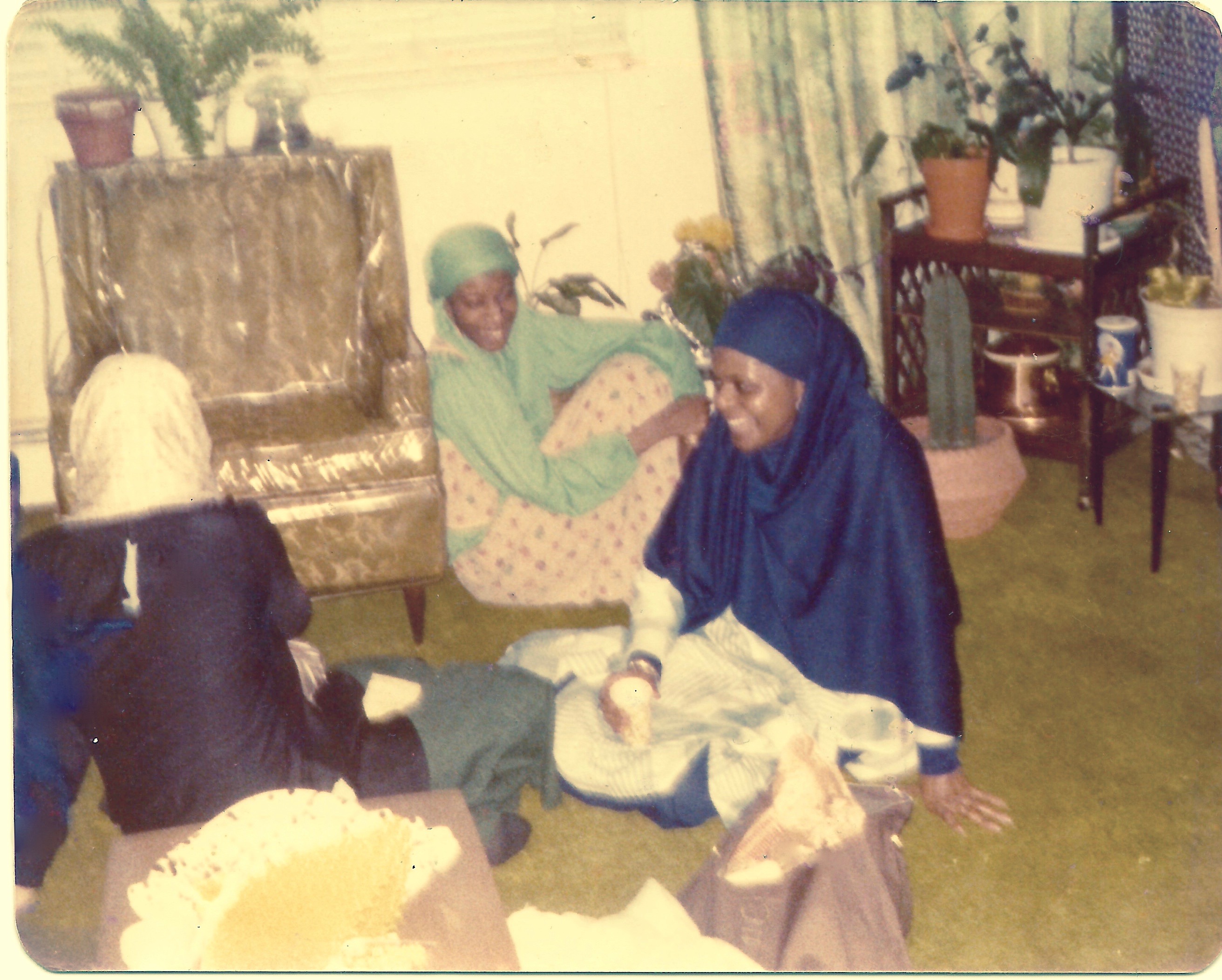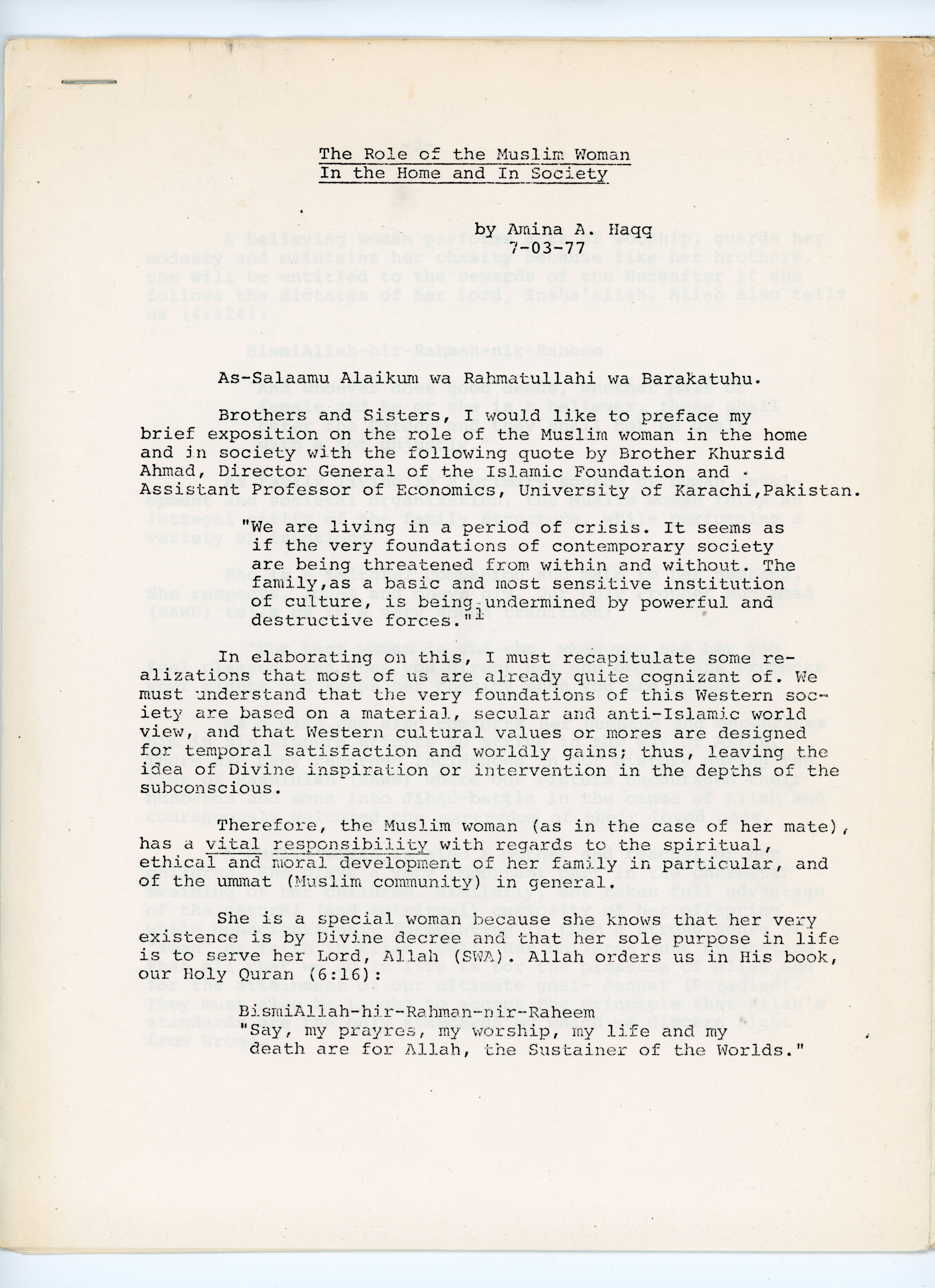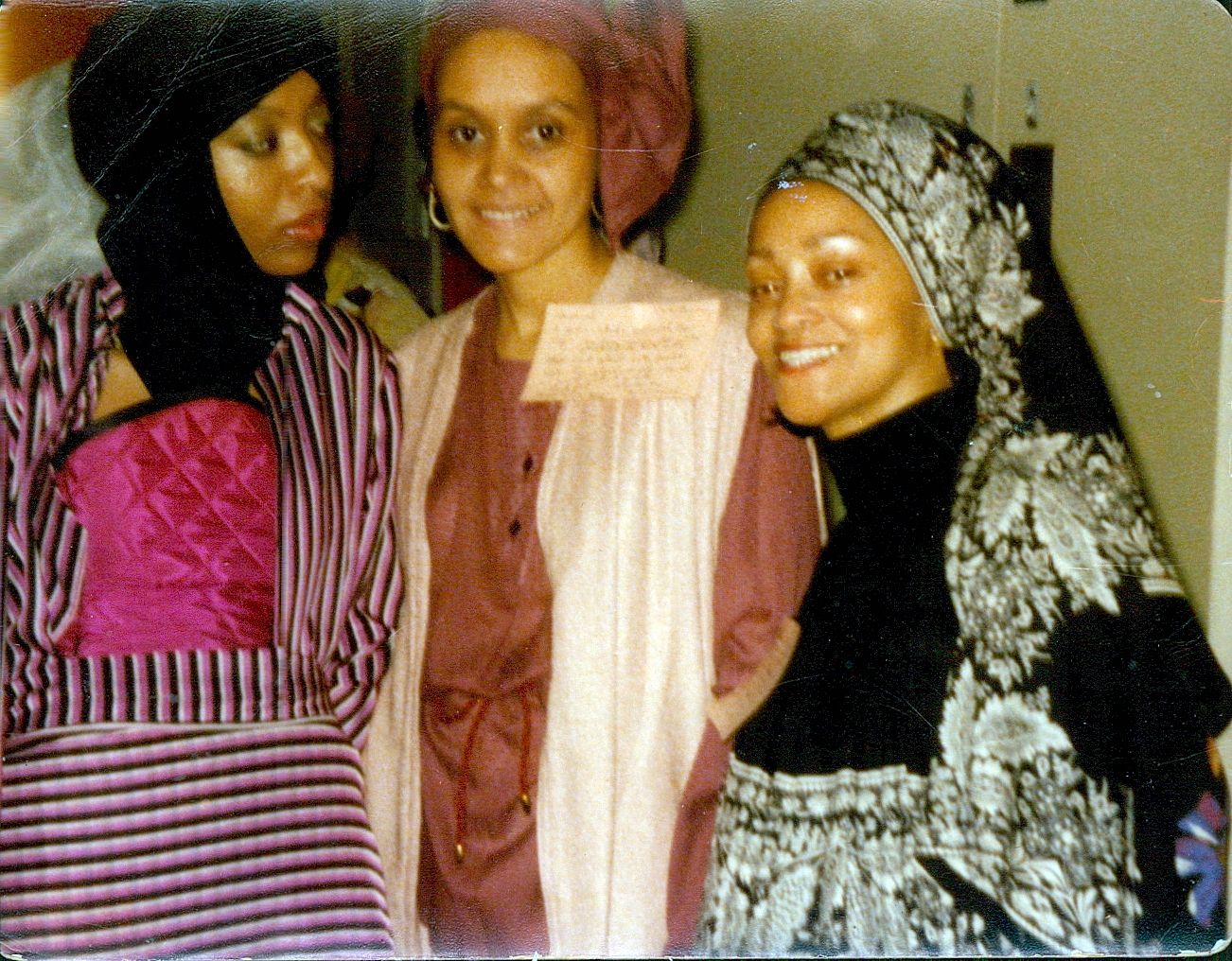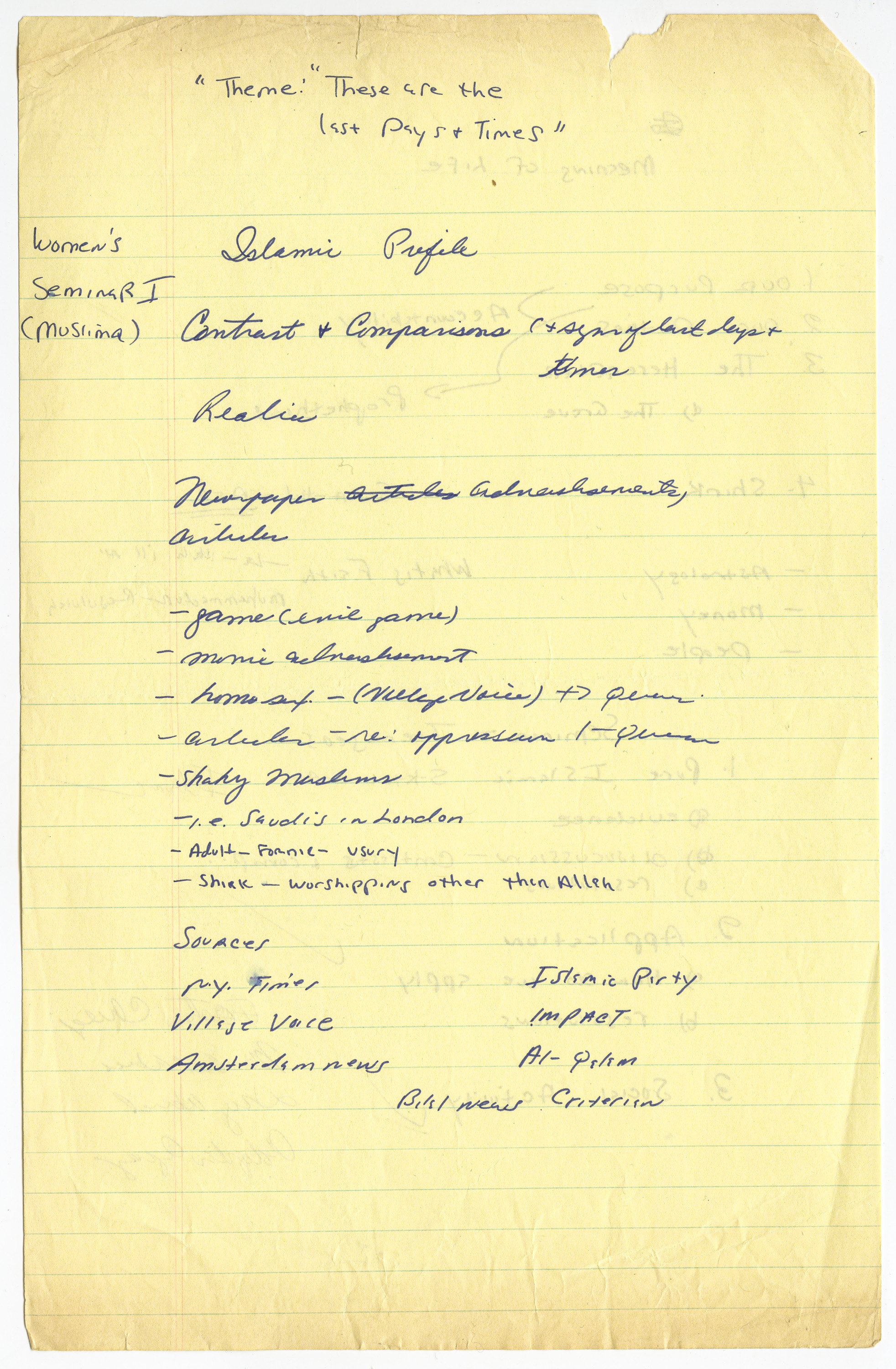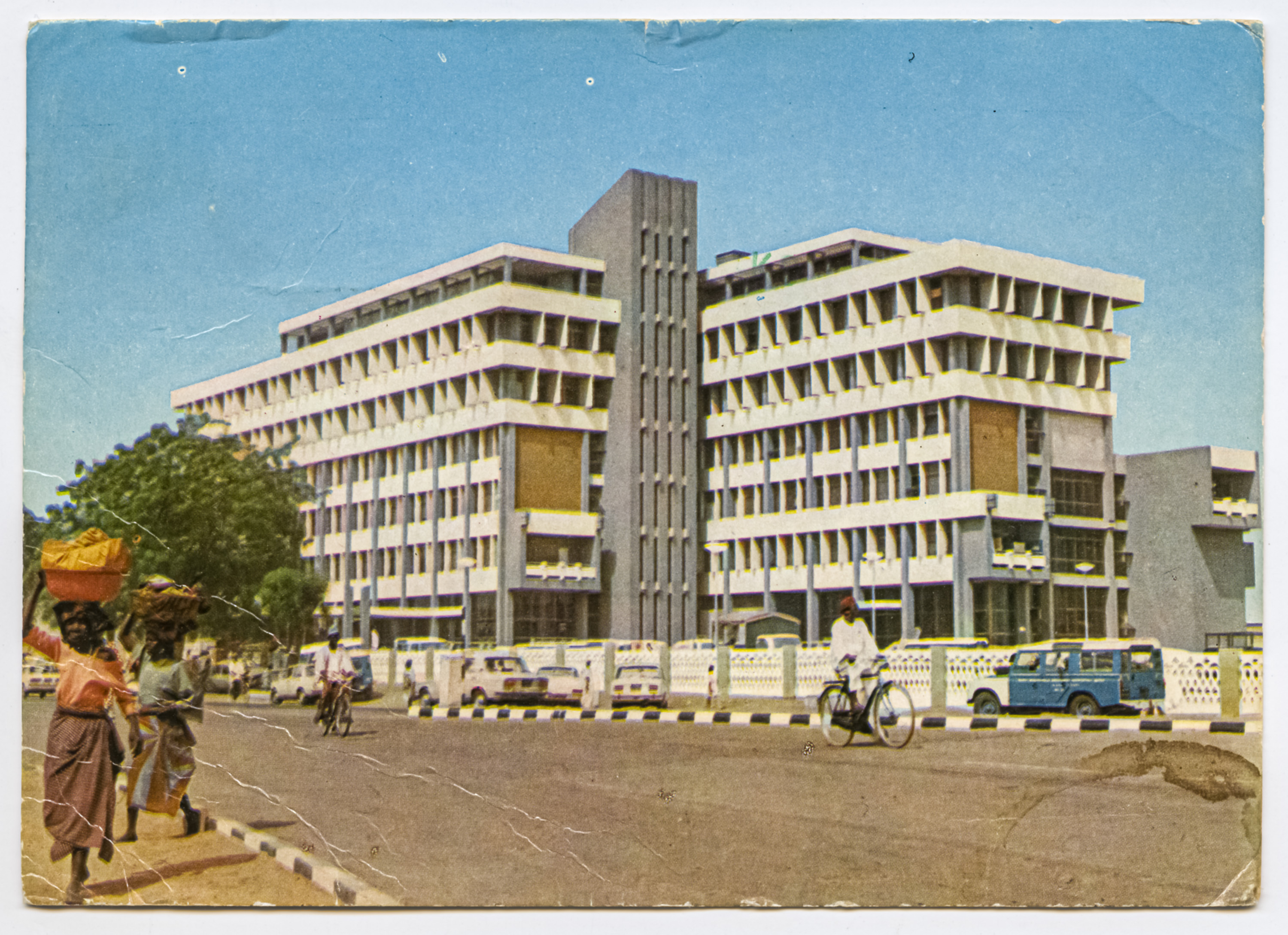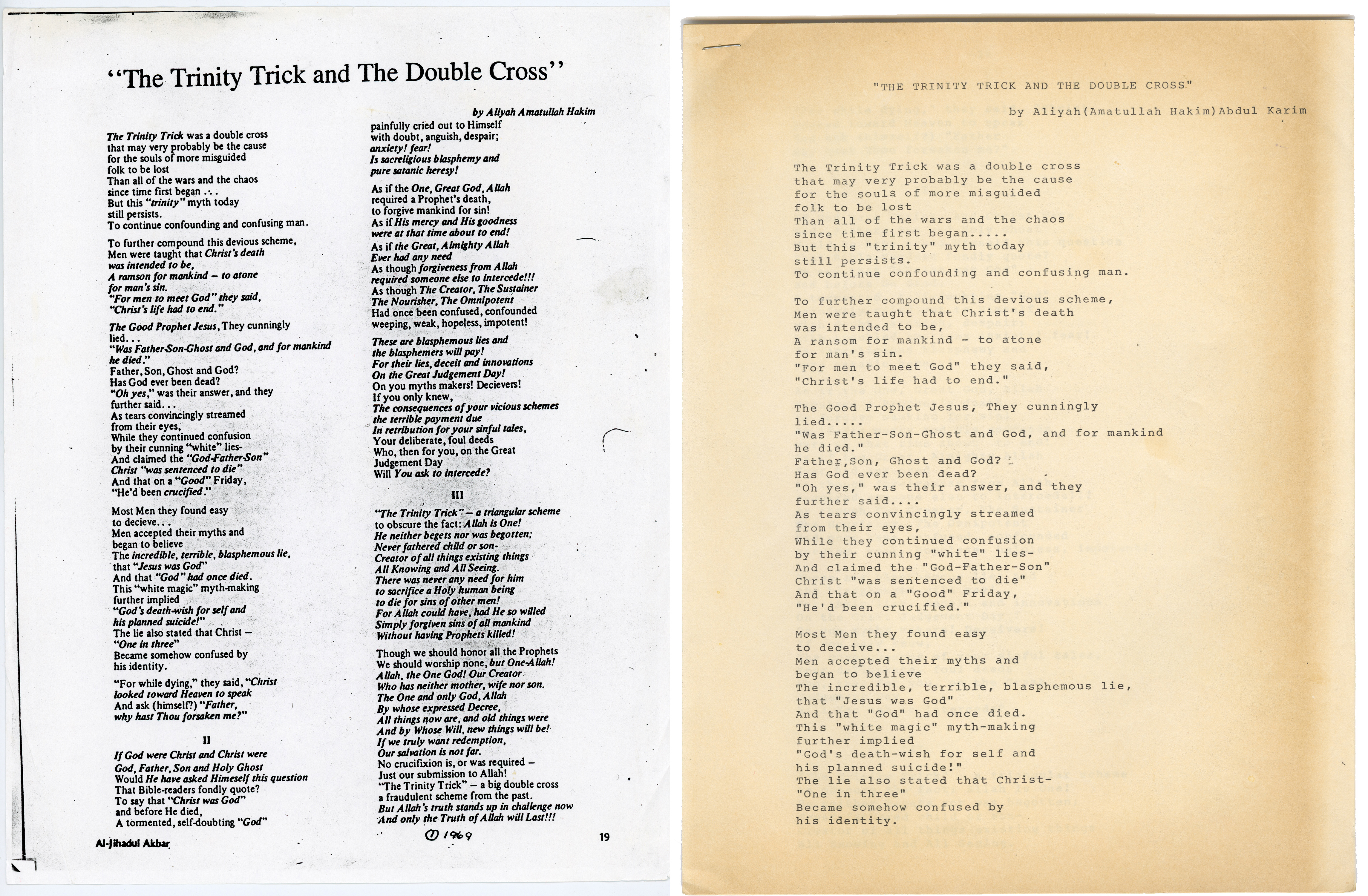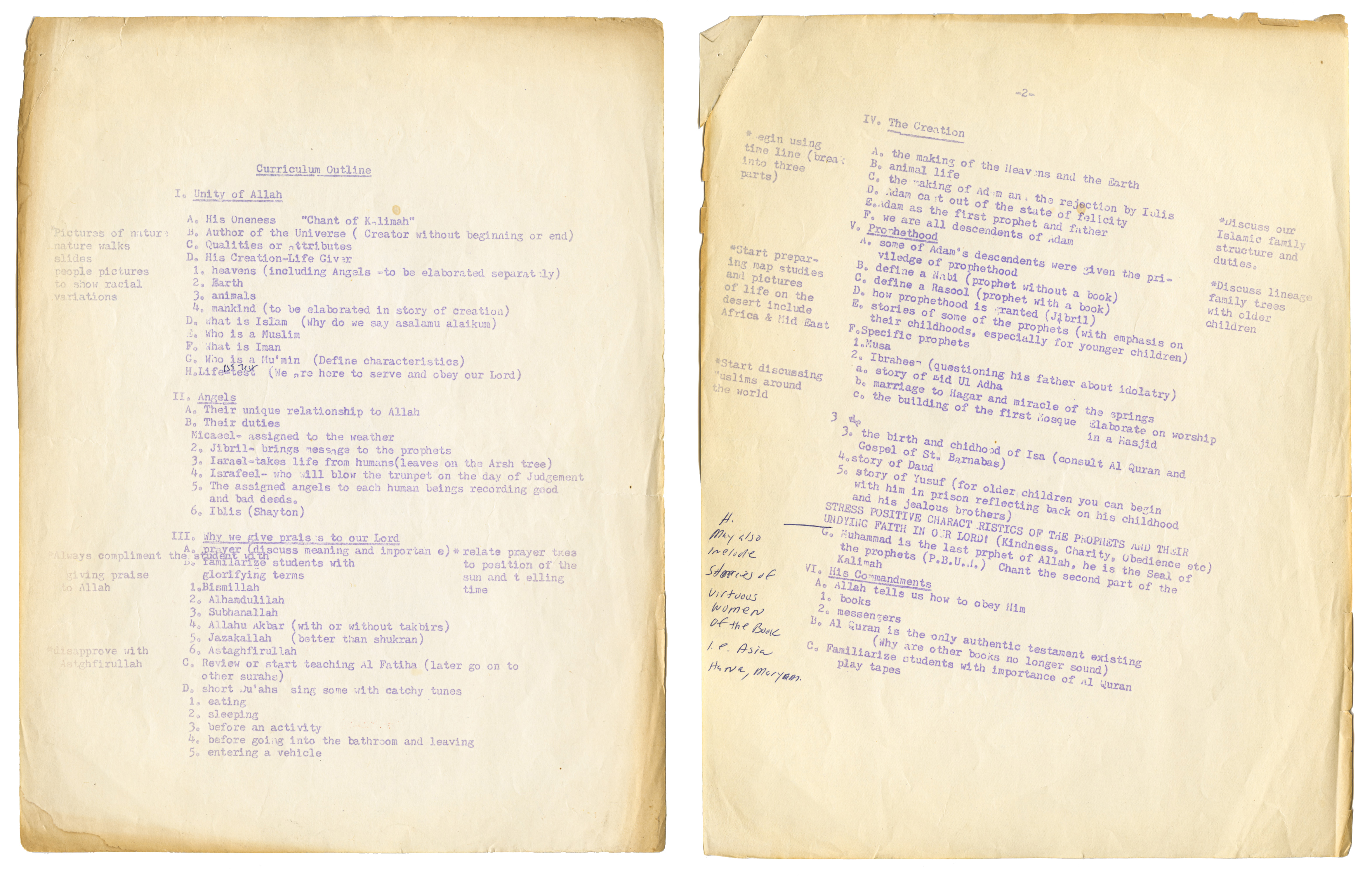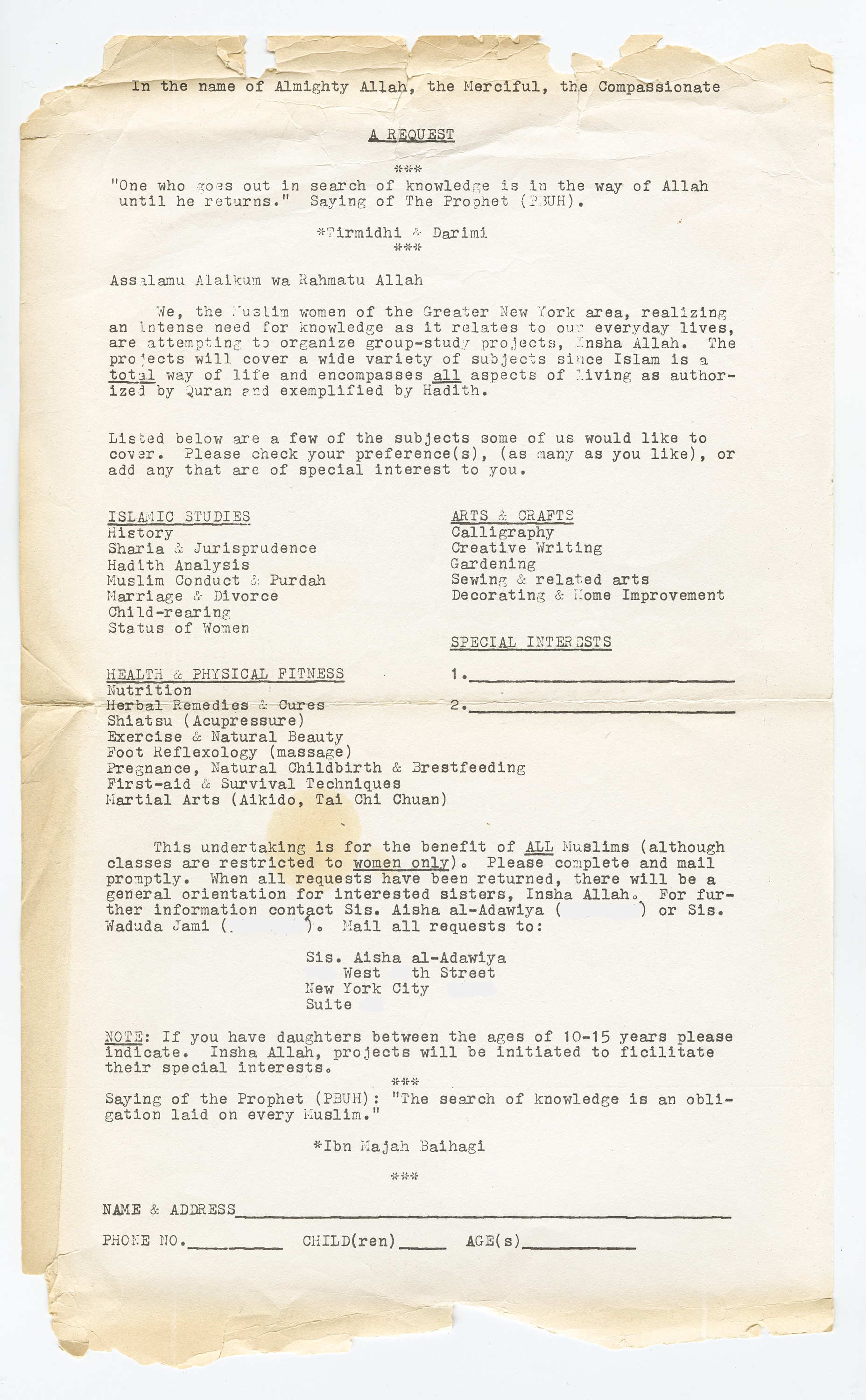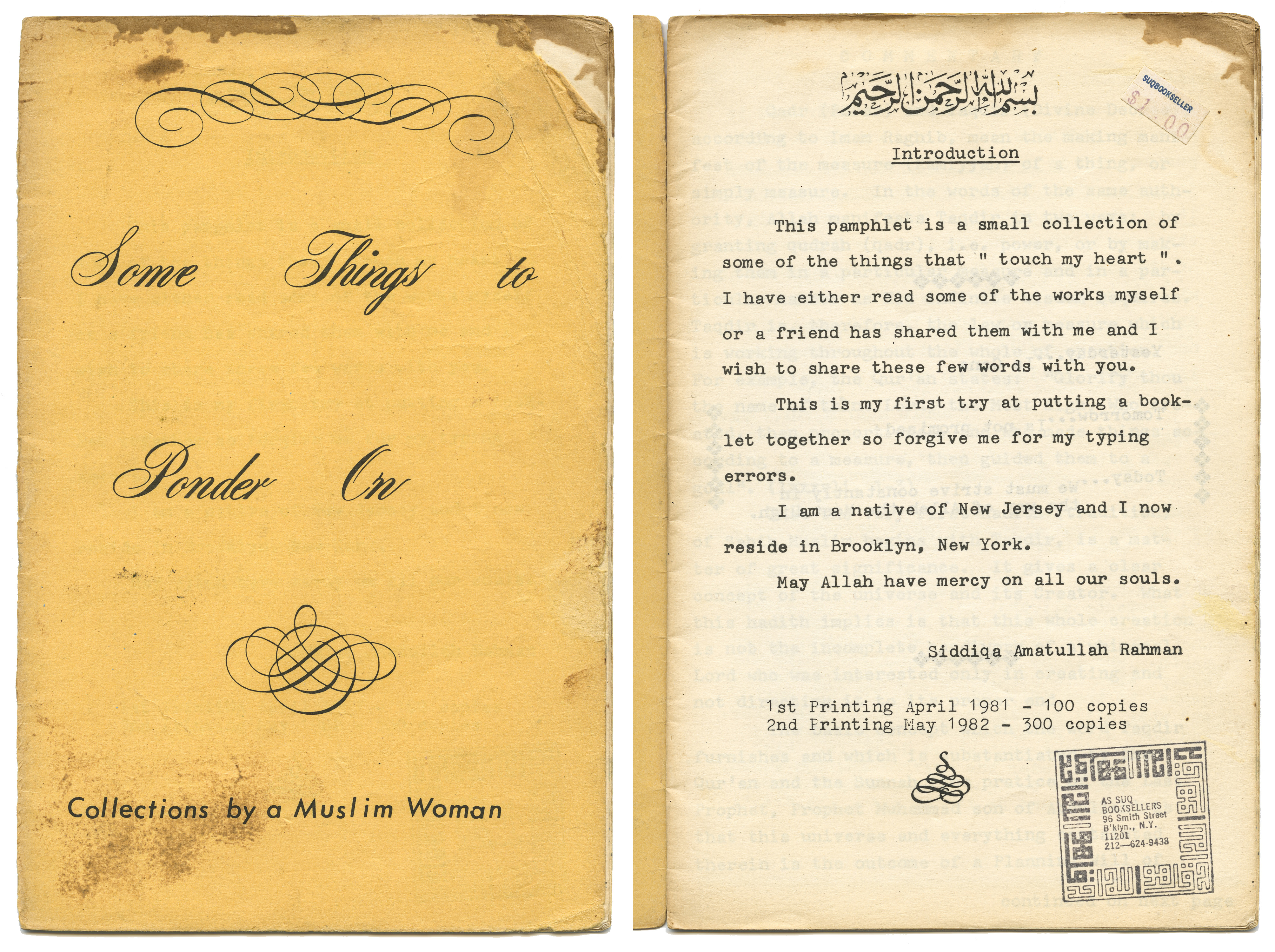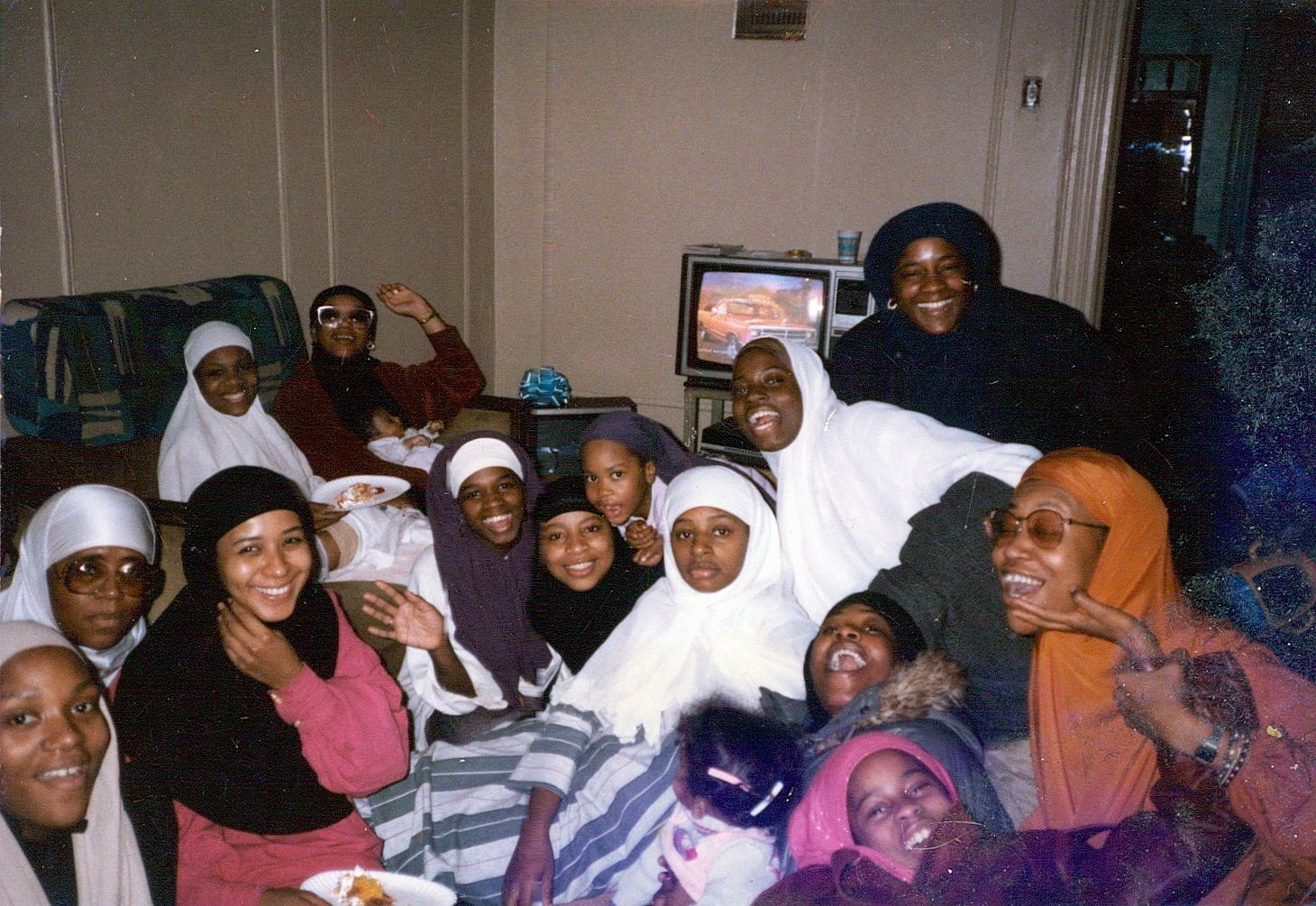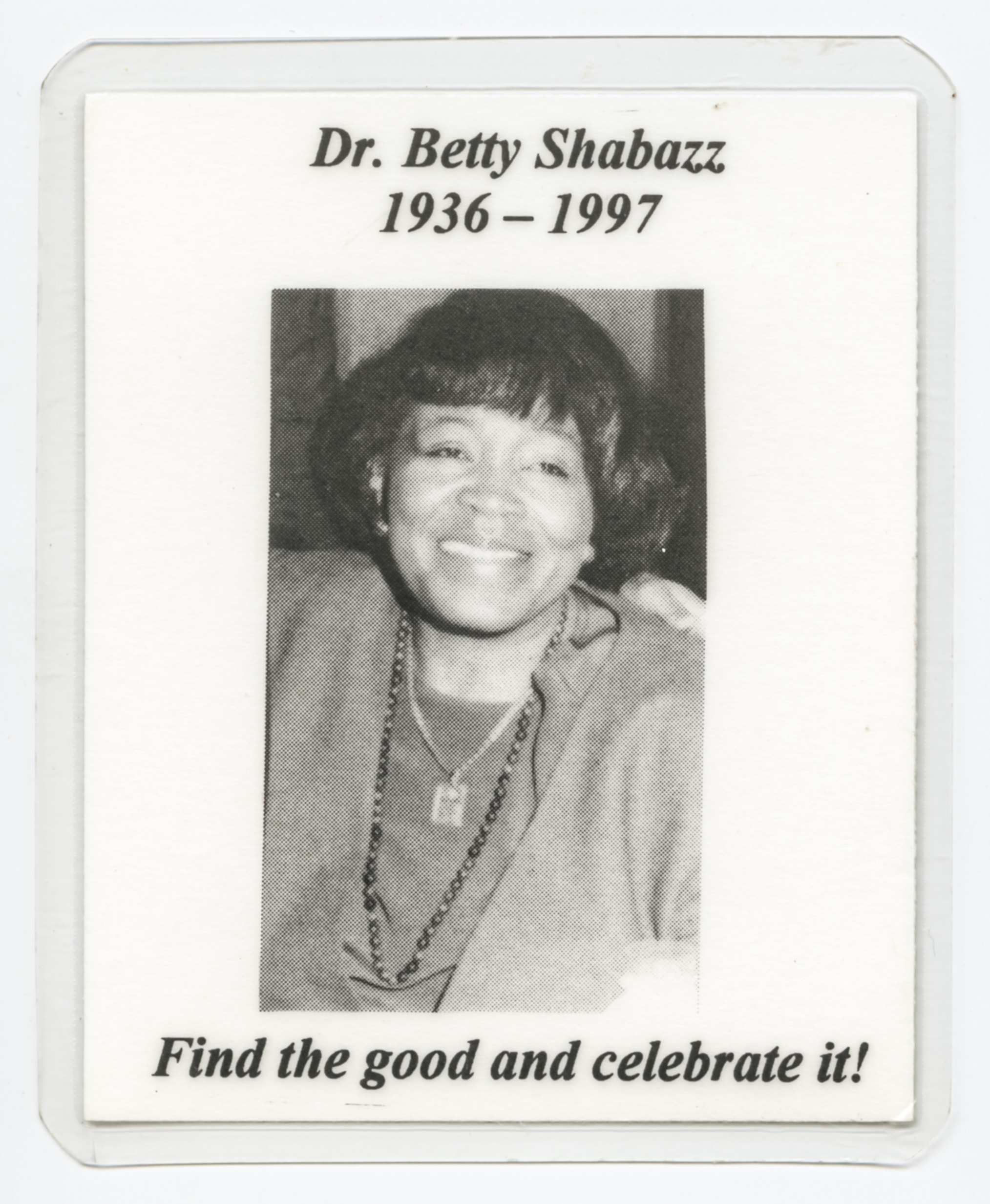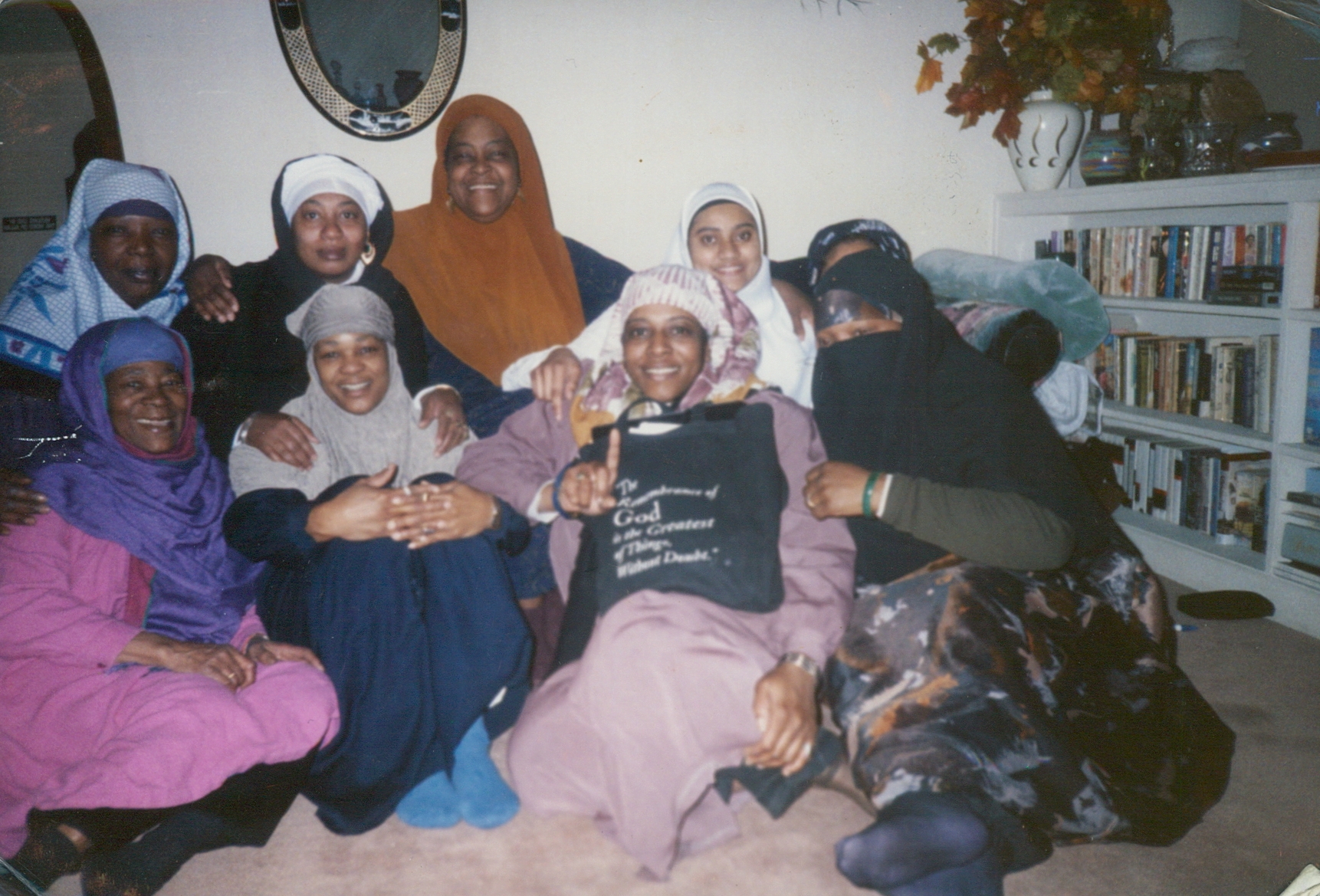Activist Sisters
Curator's Notes:
Umi credits Allah for connecting her with activist sisters when she became Muslim. This was critical for her development as a Muslim because it gave her — a single woman with an activist background — a cohort of women to build with; women who also firmly believed Islam provided ethical spiritual and practical means to advance justice for themselves, their families, and their people. While these women would not, at least at the time, call themselves feminists, they organized and mobilized as women in ways similar to their Black feminist peers. Likewise, in contrast to today's obsession with the silent oppressed Muslim woman, their activities demonstrate a belief as Muslims that women have the capacity and the responsibility to lead alongside men.
